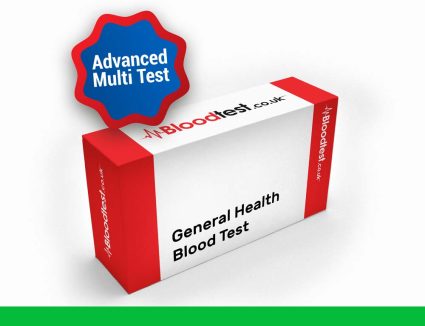Why Blood Tests Are Vital for Monitoring Your Child's Health
Exploring the Crucial Role of Blood Tests in Paediatric Healthcare

Blood tests are an essential aspect of children's healthcare, serving as a fundamental diagnostic tool that helps in identifying and managing various health conditions. These crucial tests can reveal underlying health issues that may not display obvious symptoms, thus facilitating early intervention and effective treatment plans. For example, conditions like anaemia can be quickly identified through a simple full blood count, allowing for prompt management that is vital for your child's well-being. Moreover, blood tests play a significant role in monitoring chronic health issues such as diabetes and allergies, providing critical insights into the effectiveness of ongoing treatments and the overall health of your child.
Access to blood testing services has dramatically improved across the UK, with a variety of options available through the NHS as well as numerous private clinics. While parents may find it challenging to navigate these choices, understanding the importance of these tests can alleviate some of the anxiety surrounding them. Regular monitoring through blood tests can offer parents reassurance regarding their child's health and development, making such evaluations indispensable in paediatric care.
With advancements in medical technology, the accuracy and reliability of blood tests have improved significantly, allowing for more thorough screening of various conditions. This capability not only assists in addressing immediate health concerns but also plays a crucial role in long-term health planning, ensuring that children develop healthily and thrive. Consequently, prioritising child blood test preparation is essential for parents who aspire to provide their children with the highest quality of healthcare.
 Understanding the Different Types of Blood Tests Available for Children
Understanding the Different Types of Blood Tests Available for Children
Getting familiar with the various types of blood tests available for children can significantly ease the process and empower parents to prepare more effectively. Common tests include the full blood count (FBC), which evaluates overall health and identifies disorders such as anaemia and infections. This test measures multiple components, including red blood cells, white blood cells, and platelets, offering a comprehensive snapshot of your child's blood health and potential medical concerns.
Another critical test is the blood glucose level assessment, which is especially important for children who are at risk for diabetes or already diagnosed with this condition. This test is essential for monitoring blood sugar levels and informing necessary dietary and lifestyle changes that can have a substantial impact on your child's health. Additionally, with the rise in childhood obesity, cholesterol checks are becoming increasingly important; these tests evaluate lipid profiles, providing insights into cardiovascular health from an early age.
Each blood test serves a unique purpose, and the choice of which tests to perform often depends on the child's age, symptoms, and medical history. Consulting with a healthcare provider can assist in determining the appropriate tests for your child, ensuring they receive personalised care. This proactive approach highlights the significance of preparing for blood tests as a routine element of paediatric healthcare.
Effective Strategies for Mentally Preparing Your Child for a Blood Test
Preparing your child mentally is a vital part of child blood test preparation. Effectively communicating the blood test procedure using simple and reassuring language can greatly reduce anxiety levels. Use age-appropriate terms to describe what will happen, stressing that the test is quick and painless. Comparing the sensation of the blood draw to something familiar, like a slight pinch, can help demystify the experience and lessen any apprehension.
Providing reassurance is key in alleviating fear. Let your child know that feeling nervous is completely normal and that many children share similar feelings. Acknowledging their emotions while offering comfort and support can help them feel more secure. Encouraging your child to ask questions can also empower them, allowing them to feel actively engaged and in control of the situation.
Utilising visual aids, such as pictures or videos that depict the procedure, can further enhance understanding. These resources enable children to visualise what to expect, making the experience less daunting. As the test day approaches, engage in uplifting conversations about the upcoming event, focusing on the ultimate goal: better health and well-being.
Setting a positive example by displaying confidence about the test can significantly influence your child’s mindset. Share stories of how you or older siblings dealt with similar situations, reinforcing that bravery is something to be proud of. With adequate mental preparation, blood tests can transform from a frightening experience into a manageable one, fostering your child's resilience.
Determining How Frequently Your Child Should Undergo Blood Tests

The frequency of blood tests for children can vary widely based on several factors, including age, pre-existing health conditions, and family medical history. For instance, newborns typically undergo a heel prick test shortly after birth to screen for congenital conditions. As children develop, their healthcare provider may recommend regular blood tests to monitor growth and development, particularly if there are concerns regarding nutrition or underlying health issues.
Routine blood tests may also be necessary to track health status and the efficacy of treatments for chronic conditions like diabetes or sickle cell disease. Healthcare professionals often recommend regular blood tests during well-child visits to ensure that potential health problems are detected early. Parents should have discussions with their healthcare provider about their child's specific needs to establish an appropriate testing schedule tailored to their individual circumstances.
Furthermore, NHS guidelines suggest that blood tests may be necessary if a child shows symptoms like persistent fatigue, unexplained weight loss, or unusual bruising. Family history is also a critical factor; children with a family history of certain conditions may need more frequent testing to facilitate early detection. Understanding these nuances allows parents to adopt a proactive approach to their child's healthcare, emphasising the importance of regular monitoring through blood tests.
Interpreting and Understanding Blood Test Results for Your Child
Interpreting blood test results can often feel daunting, especially for parents who may not be well-versed in medical terminology and metrics. Each test result is accompanied by a range of normal values, and deviations can indicate various health concerns or reflect individual differences. Consulting with a healthcare provider is essential for comprehending what these figures mean for your child’s health.
Healthcare professionals can elucidate the implications of each result and recommend appropriate follow-up steps based on the findings. For example, if a full blood count indicates low iron levels, a doctor may advise dietary changes or supplements. These interpretations are crucial for swiftly addressing health issues and ensuring that your child receives the required care.
It’s also essential to understand that not all deviations from the norm signify a serious problem; some results may warrant monitoring rather than immediate intervention. Maintaining open communication with healthcare providers can clarify these issues, enabling parents to navigate their child's health landscape with confidence.
Relying on reputable sources and maintaining an open dialogue with your healthcare team empowers parents to become informed advocates for their children. As parents gain deeper insights into their child's health through blood test results, they can make empowered decisions regarding their care, underscoring the significance of child blood test preparation.
Selecting the Ideal Clinic or Hospital for Blood Tests
Utilising NHS Services for Comprehensive and Accessible Blood Testing

The National Health Service (NHS) offers extensive blood testing services throughout the UK, ensuring that all children have access to vital healthcare resources. Blood tests are typically conducted in hospitals and certain GP surgeries, with many requiring referrals from healthcare professionals. Parents should consult their GP to discuss concerns and obtain necessary referrals, which simplifies the process of accessing blood tests.
NHS blood testing facilities are generally well-equipped and staffed by trained professionals who understand the unique needs of children. These environments are designed to be child-friendly, helping to alleviate any anxiety related to the tests. Furthermore, the NHS provides a comprehensive range of tests, making it a reliable option for families seeking routine check-ups or specific assessments.
Being aware of the NHS's operating hours and availability can further assist parents in planning visits. Many centres offer online booking systems, allowing families to conveniently schedule appointments. Additionally, the NHS often provides resources for parents, including pre-appointment information that can help prepare children for their blood tests. This accessibility and support significantly enhance the overall experience, making NHS services an excellent choice for child blood test preparation.
Exploring the Advantages of Private Clinics for Blood Tests
For families seeking quicker appointments or specialised services, private clinics provide an alternative to NHS facilities. While the cost may be higher, private clinics often offer more flexible scheduling options, enabling parents to select appointments that align with their busy lifestyles. This flexibility can be particularly beneficial for working parents or those with demanding schedules who may find it challenging to secure NHS appointments.
Private clinics typically feature shorter waiting times, which can greatly reduce anxiety for both parents and children. Many of these facilities are designed to create child-friendly environments and employ staff trained to handle paediatric cases with sensitivity. This specialised approach can make blood tests less intimidating for children, fostering a more positive overall experience.
However, parents should remember that not all private clinics provide the same range of services as the NHS. Conducting thorough research is essential to ensure that the chosen clinic offers the necessary tests and adheres to quality standards. Reading reviews and seeking recommendations can guide families in making informed decisions regarding where to take their children for blood tests.
Private clinics can be an excellent option for families prioritising convenience and specialised care. Nevertheless, parents should weigh the benefits against the costs to ensure they choose the best approach for their child's health needs.
What to Expect During Your Child's Blood Test Appointment
Understanding what to expect during a blood test appointment can significantly alleviate anxiety for both parents and children. Upon arriving at the clinic or hospital, families usually go through a registration process, during which details such as the child's NHS number, referral information, and identification are collected. This process is typically straightforward and helps to streamline the experience.
After registration, families may encounter a short waiting period before the test. During this time, engaging your child with distraction techniques, such as reading a book or playing a game on a mobile device, can be beneficial. Keeping them occupied helps to ease any potential nerves and anxiety.
When it’s time for the blood draw, trained professionals will explain the procedure to both the child and the parent. They will use a small needle to collect the necessary sample, which is usually taken from a vein in the arm or hand. While this may sound intimidating, the process typically lasts only a few moments. The staff will provide reassurance to the child, ensuring they feel comfortable throughout the procedure.
After the test, parents can expect to receive information on how to care for the site where the blood was drawn. This may include guidance on applying pressure to stop any bleeding and monitoring for signs of infection. Knowing the steps involved in an appointment can help demystify the process, enabling parents to prepare their children effectively and making child blood test preparation a smoother experience.
Physically Preparing Your Child for Their Blood Test
Understanding Fasting Requirements for Specific Blood Tests
Understanding fasting requirements is essential for certain blood tests, as some necessitate that children refrain from food and drink for a specified duration. Fasting is typically required for blood glucose assessments, where food intake could distort the results. Parents should consult with their healthcare provider to confirm whether fasting is necessary and how long their child should avoid eating prior to the test.
To mitigate the potential discomfort of fasting, scheduling the appointment early in the day is advisable, allowing for a minimal duration without food. Ensuring your child enjoys a substantial meal the night before the test can help maintain their energy and mood. Focus on a balanced diet rich in proteins, healthy fats, and complex carbohydrates, which will provide sustained energy and stability throughout the fasting period.
When fasting is required, encouraging adequate water intake before the test can help maintain hydration levels. Explain to your child the importance of staying hydrated and how it can facilitate the blood draw process by making it easier for professionals to obtain a sample. Proactive preparation for fasting can alleviate anxiety and stress surrounding the test, leading to a smoother overall experience.
Additionally, monitoring your child's energy levels and mood the night before can provide insights into their readiness for the fast. If your child displays irritability or fatigue, consider discussing this with your healthcare provider to determine if any adjustments are needed. Understanding and preparing for fasting requirements can significantly enhance the child's blood test preparation experience.
Prioritising Hydration and Nutrition Before the Blood Test
Hydration and nutrition are fundamental in preparing your child for a blood test. If fasting is not required, ensuring your child is well-hydrated prior to the appointment can facilitate the blood draw, making veins easier to locate. Encourage your child to drink plenty of water the day before the test, while avoiding sugary or caffeinated beverages that could lead to dehydration.
Nutrition also plays a significant role in preparing for blood tests. A balanced meal the night before can provide the necessary energy and comfort. Emphasise the importance of consuming a variety of foods, including fruits, vegetables, whole grains, and proteins. This approach not only supports general health but can also positively influence the results of the blood tests.
If your child is anxious about the test, consider preparing a nutritious breakfast on the day of the appointment, provided fasting is not required. Foods rich in iron, such as fortified cereals or lean meats, can help boost blood health, while sources of vitamin C, like oranges or broccoli, can aid in iron absorption. This attention to diet can also support your child's overall well-being during the testing process.
Ultimately, prioritising hydration and nutrition prepares your child physically for the test and reflects a holistic approach to their health. Engaging your child in discussions about healthy eating can foster a greater understanding of how food influences their bodies, reinforcing positive habits beyond the blood test.
Selecting Comfortable Clothing for Your Child's Blood Test Appointment
Choosing comfortable clothing for your child on the day of the blood test can greatly enhance their overall experience. Loose-fitting garments facilitate easy access to the arm, where the blood draw is typically performed, minimising discomfort during the procedure. Opt for short sleeves or clothing that can be easily rolled up, ensuring your child remains comfortable throughout the appointment.
Familiar clothing can also provide a sense of security for children, helping them feel more at ease in an unfamiliar environment. Encourage your child to wear their favourite outfit or something associated with positive experiences. This small gesture can help alleviate anxiety and foster a more positive atmosphere.
Consider the weather conditions when selecting clothing. If it’s a chilly day, layering with a light jacket can help keep your child warm without restricting movement. A comforting blanket or a familiar item can also offer additional reassurance during the appointment, allowing your child to feel secure and relaxed.
The goal is to make the blood test experience as stress-free as possible. By paying attention to these details, parents can ensure that their child feels comfortable and supported, positively influencing how they perceive medical appointments in the future.
Ensuring Adequate Rest for Your Child Prior to the Blood Test
Ensuring your child gets sufficient rest before the blood test is vital for a smooth experience. A well-rested child is more likely to be cooperative and less anxious, which eases the entire process for both the child and the parents. Establishing a calming bedtime routine the night before can help your child unwind and prepare for sleep, reducing any pre-test nerves.
Consider discussing the upcoming test with your child during a relaxing moment, perhaps at bedtime, to alleviate anxiety. This open conversation prepares them mentally and fosters a sense of trust and security. Positive reinforcement about their bravery can further enhance their confidence, helping them feel supported.
On the day of the test, ensure your child wakes up with ample time to prepare without feeling rushed. A calm morning can set a positive tone for the day, allowing your child to feel more in control. If possible, schedule the appointment for a time of day when your child is typically at their best, such as mid-morning after they’ve had breakfast and a chance to fully wake up.
Ultimately, prioritising adequate rest is a simple yet effective strategy for preparing your child for a blood test. Attending to their physical and emotional needs can lead to a more positive experience, reinforcing their ability to handle similar situations in the future.
Techniques for Reducing Anxiety During Blood Tests
Implementing Distraction Techniques to Ease Your Child's Anxiety
Distraction can be a highly effective strategy for alleviating anxiety during a blood test. Bringing along a favourite toy or book can provide comfort for your child and help redirect their focus away from the procedure. Engaging them in activities that pique their interest, such as playing a game on a tablet or listening to music, can create an enjoyable atmosphere that diverts their attention from any discomfort.
Consider initiating conversations about topics your child loves or creating fun stories to distract them. Using humour can also lighten the mood; playful banter often helps ease tension, ensuring the child feels less anxious about their surroundings. If possible, involve your child in selecting their distraction item, allowing them to feel more in control of the situation.
Clinics sometimes provide toys or books in waiting areas, so it’s worth checking in advance. If your child is particularly anxious, inquire with the staff about available resources that can help keep them entertained during the appointment. Overall, effectively utilising distraction techniques can lay the groundwork for a more positive experience and reinforce the importance of child's blood test preparation.
Practising Breathing Exercises to Help Reduce Anxiety
Teaching your child simple breathing exercises can significantly alleviate anxiety related to blood tests. Deep, slow breaths help activate the body's relaxation response, making the experience less overwhelming. Start by guiding your child through a basic technique: inhale deeply through the nose for a count of four, hold for a count of four, and then exhale slowly through the mouth for another count of four.
Practising this technique together before the appointment can help your child feel more prepared. Explain to them that they can use this method when they feel anxious during the test. Reassure your child that feeling nervous is perfectly normal and that many children employ breathing exercises to calm themselves in similar situations.
Visualisation can also enhance the effectiveness of breathing exercises. Encourage your child to imagine a peaceful place or scenario while breathing, such as lying on a beach or playing in a favourite park. This mental imagery can help transport them away from the clinical environment, allowing them to feel more relaxed during the procedure.
Incorporating breathing exercises into your child's blood test preparation empowers children by equipping them with practical tools to manage their emotions in various situations. This skill can benefit them beyond the current appointment, proving useful in future medical visits and other anxiety-inducing circumstances.
Utilising Positive Reinforcement to Encourage Bravery
Positive reinforcement can be a powerful motivator for children facing a blood test. Praising your child for their bravery before, during, and after the procedure can help them associate the experience with positive emotions. Offering a small reward, such as a sticker or a special treat, reinforces their courage and incentivises them to remain calm throughout the process.
Discussing potential rewards beforehand can serve as a motivating factor. Talk about what they might like as a reward for being brave, whether it’s a visit to their favourite park or a fun activity together. This gives your child something to look forward to and encourages them to approach the test with a positive mindset.
After the test, celebrate their bravery, regardless of how they handled the situation. Acknowledging their feelings and reinforcing their courage helps build resilience, making future medical appointments seem less daunting. Emphasising that this was just one step in a larger journey towards health can also foster a positive perspective on medical experiences.
Incorporating positive reinforcement into your child's blood test preparation makes the experience more manageable. It also helps cultivate a sense of bravery and confidence in your child, equipping them for future challenges.
Utilising Visualization Techniques to Manage Anxiety
Visualisation is an effective method for managing anxiety during blood tests. Encouraging your child to create a mental image of a happy place can help divert their attention from the procedure. This could be a favourite holiday spot, a beloved pet, or even an imaginary adventure in a whimsical setting. Focusing on positive imagery can significantly reduce stress and anxiety in children.
To facilitate this process, guide your child through the visualisation exercise before the appointment. Encourage them to close their eyes, take deep breaths, and imagine the sights, sounds, and feelings of their happy place. This technique not only distracts them during the procedure but also empowers them to find comfort in their minds.
Remind your child that they can utilise this technique whenever they feel anxious, not just during medical appointments. Providing them with practical tools for managing their emotions can promote resilience and self-soothing skills, enabling them to approach other stressful situations with confidence.
By incorporating visualisation into your child's blood test preparation, you help your child develop coping strategies that extend beyond the immediate experience, fostering emotional well-being and resilience in the long term.
Ensuring Physical Comfort During the Blood Draw
Physical comfort during a blood test is crucial for ensuring your child feels secure. A reassuring touch, such as holding their hand or offering a gentle hug, can create a sense of safety amidst the clinical environment. Children often respond positively to physical affection, which can help alleviate anxiety and stress related to the procedure.
Encourage your child to bring a comfort item, such as a small stuffed animal or a blanket. Familiar objects can provide a sense of security and help distract from the procedure. The presence of something that evokes positive emotions can create a calming atmosphere, making the experience less intimidating for your child.
Additionally, discussing the importance of staying still during the blood draw can help your child understand their role. Explain that remaining calm and relaxed allows the healthcare professional to perform their job effectively. This understanding can empower your child, giving them a sense of control over their experience.
Ultimately, prioritising physical comfort during your child's blood test preparation enhances your child's emotional state, allowing them to approach the appointment with a more relaxed and open mindset. This support reinforces the significance of nurturing your child's emotional and physical needs throughout their healthcare journey.
Key Items to Bring for Your Child's Blood Test Appointment
Gathering Identification and Referral Documents for Efficient Processing
Bringing the necessary identification and referral documents to a blood test appointment ensures a seamless experience. Ensure you have your child's NHS number, which is crucial for accessing their medical records and facilitating the process. If a referral letter is required, be certain to have it readily available to present to healthcare staff.
Preparing these documents in advance can minimise delays and frustrations during the appointment. A simple checklist can help parents ensure they have everything before heading to the clinic or hospital. This preparation not only streamlines the process but also allows parents to devote more time to comforting their child.
In certain cases, additional identification may be required, such as proof of address or identification for the accompanying adult. Confirming which documents are necessary before the appointment can alleviate stress on the test day, leading to a smoother experience for both parent and child.
Ultimately, being well-prepared with identification and referral documents is a straightforward yet effective way to enhance the child blood test preparation process and ensure everything runs smoothly.
Bringing Comfort Items for Your Child's Emotional Support
Packing comfort items for your child can significantly enhance their sense of security during a blood test appointment. Familiar objects, such as a favourite blanket, stuffed animal, or toy, can provide reassurance and help distract them from the procedure. These items serve as a tangible connection to positive emotions, creating a comforting atmosphere amidst a potentially intimidating experience.
Encouraging your child to select their comfort item can empower them and foster a sense of control over the situation. This involvement helps build their confidence, transforming an anxious event into a more manageable experience. Consider allowing your child to hold their comfort item during the blood draw, as this can provide additional security and comfort.
In addition to physical comfort items, parents can also bring distractions such as drawing materials or a tablet loaded with their child's favourite shows or games. These distractions can help take their minds off the test, making the appointment feel less daunting. Ultimately, prioritising comfort items in your child's blood test preparation can significantly influence how your child perceives the experience.
Snacks and Drinks for Recovery and Rejuvenation Post-Test
Bringing snacks and drinks to the appointment can be essential to your child's blood test preparation, especially if fasting is not required. After the blood draw, your child might feel shaky or hungry; having nutritious snacks readily available can help them regain their energy. Opt for easy-to-eat, healthy options like fruit slices, crackers, or yogurt, which can be comforting and replenishing.
If fasting is necessary, ensure you have a treat ready for your child to enjoy once the test is complete. This can serve as a reward for their bravery and cooperation, reinforcing positive associations with the experience. Encourage them to enjoy snacks in a relaxed setting, allowing them to decompress after the procedure.
Staying hydrated is equally important, so bring along a bottle of water or a juice box to help your child rehydrate following the test. Proper hydration can aid in recovery and alleviate any dizziness they may experience post-draw. Preparing snacks and drinks for the appointment reflects thoughtful consideration for your child's well-being, enhancing their overall experience and recovery after the blood test.
Providing Entertainment Options During Waiting Times to Alleviate Anxiety
Having entertainment options available during the waiting period can make a blood test appointment much more pleasant for your child. Packing a favourite book, tablet, or small toys can provide a distraction and help ease any pre-test jitters. Engaging children in activities they enjoy allows them to focus on something familiar and comforting rather than the anxiety of the upcoming procedure.
Consider downloading entertaining apps or shows on a tablet beforehand, allowing your child to immerse themselves in a fun world while waiting. Additionally, bringing along drawing materials or puzzle books can create an opportunity for creative expression and keep their minds occupied.
Moreover, engaging in light conversation about their interests can serve as a welcome distraction. Ask them about their favourite games or hobbies, letting them lead the discussion. This approach makes the wait more enjoyable and strengthens the parent-child bond.
By prioritising entertainment options in your child's blood test preparation, you can foster a positive atmosphere that reduces anxiety and helps your child feel more secure during the appointment.
Aftercare: Ensuring Comfort and Monitoring Your Child's Health After the Test
Delivering Comprehensive Post-Test Care for Your Child
After the blood test, appropriate post-test care is crucial for ensuring your child's comfort and well-being. The healthcare provider typically applies pressure to the blood draw site to stop any bleeding, and parents should monitor the area closely for signs of bruising or swelling. It’s important to reassure your child that these reactions are normal and that any discomfort should subside quickly.
To enhance recovery, keeping your child’s arm elevated briefly after the test can help reduce swelling and encourage healing. If your child experiences any discomfort or excessive bleeding, contacting your healthcare provider is essential to rule out complications.
Moreover, be vigilant for signs of infection, such as redness, warmth, or pus at the injection site. While infections are uncommon, being observant can help catch any issues early. Encourage your child to avoid touching the area or engaging in vigorous physical activity for the rest of the day to allow for proper healing.
Ultimately, providing attentive post-test care enhances your child's experience and reinforces the importance of monitoring their health after medical procedures, making it an essential part of child blood test preparation.
Effectively Managing Pain and Discomfort Following the Blood Test
Effectively managing pain or discomfort after a blood test is crucial for your child's well-being. If your child reports discomfort, applying a cold compress to the injection site can help reduce swelling and numb the area. This simple measure can significantly enhance comfort, particularly if your child is sensitive to pain.
If your child continues to experience pain, consult your healthcare provider regarding pain relief options. Many over-the-counter medications, such as paracetamol, can assist in alleviating discomfort; however, it is important to follow dosing instructions and seek advice tailored to your child's age and weight.
Encouraging your child to rest after the test is equally important. A calm, quiet environment can promote recovery and allow your child to relax following the procedure. Engaging them in soothing activities, such as watching a favourite film or reading together, can provide comfort and distraction from any lingering discomfort.
Ultimately, prioritising effective pain management and recovery strategies is vital in enhancing your child’s experience after a blood test, underscoring the importance of compassionate care in the child's blood test preparation process.
When to Seek Further Medical Advice Following Your Child's Blood Test
Knowing when to seek additional medical advice after a blood test is essential for ensuring your child's health and safety. Parents should remain vigilant for signs such as excessive bleeding, significant swelling, or any unusual reactions following the procedure. If your child experiences persistent pain or discomfort at the injection site, consulting with your healthcare provider is crucial.
In addition to physical symptoms, emotional well-being is also important. If your child exhibits signs of distress or fear related to the blood test, discussing these feelings with a healthcare professional can help address any underlying concerns. They can offer strategies for managing anxiety in future appointments, ensuring your child feels more supported.
Furthermore, if test results raise concerns or necessitate additional follow-up, parents should communicate openly with their healthcare provider. Understanding the implications of test results can empower parents to make informed decisions regarding their child’s health and well-being.
Ultimately, being proactive in seeking medical advice when needed reinforces the importance of careful monitoring and compassionate care in navigating your child’s health journey after blood tests.
Frequently Asked Questions About Blood Tests for Children
1. How can I effectively prepare my child for a blood test?
Preparation entails clearly explaining the procedure, reassuring your child, ensuring they wear comfortable clothing, and discussing any necessary fasting requirements beforehand.
2. What is the recommended frequency of blood tests for my child?
The frequency of blood tests varies based on numerous factors, including age, health conditions, and family history. Consult your child's healthcare provider for personalised recommendations.
3. What types of blood tests might my child require?
Common blood tests for children include full blood counts, blood glucose levels, and cholesterol checks, each serving distinct diagnostic purposes.
4. Is fasting obligatory before a blood test?
Fasting requirements differ based on the specific blood test. Consult your healthcare provider to ascertain if fasting is necessary for your child's test.
5. What strategies can I employ to help my child manage anxiety about blood tests?
Distraction techniques, breathing exercises, positive reinforcement, and comfort items can effectively alleviate your child's anxiety before and during the blood test.
6. What items should I bring to the appointment?
Bring your child's NHS number, referral letters, identification, comfort items, snacks, and entertainment options to make the appointment more enjoyable.
7. What post-test care should I provide for my child?
Monitor the injection site for signs of infection, apply pressure to stop bleeding, and encourage your child to rest to facilitate recovery after the test.
8. When should I seek medical advice following a blood test?
Seek advice if your child experiences excessive bleeding, significant swelling, or unusual reactions at the injection site, or if they exhibit emotional concerns regarding the test.
9. How can I interpret my child's blood test results?
Consulting with a healthcare provider is essential for understanding blood test results. They can clarify the implications and recommend the necessary next steps based on the findings.
10. Are there private clinics available for blood tests?
Yes, private clinics offer blood testing services with potentially shorter wait times and more flexible scheduling, although this may come at a higher cost than NHS services.
Connect with us on Facebook!
This Article Was First Found On https://bloodtest.co.uk
The Article Child Blood Test Prep: Essential Tips for Parents Was Found On https://limitsofstrategy.com

